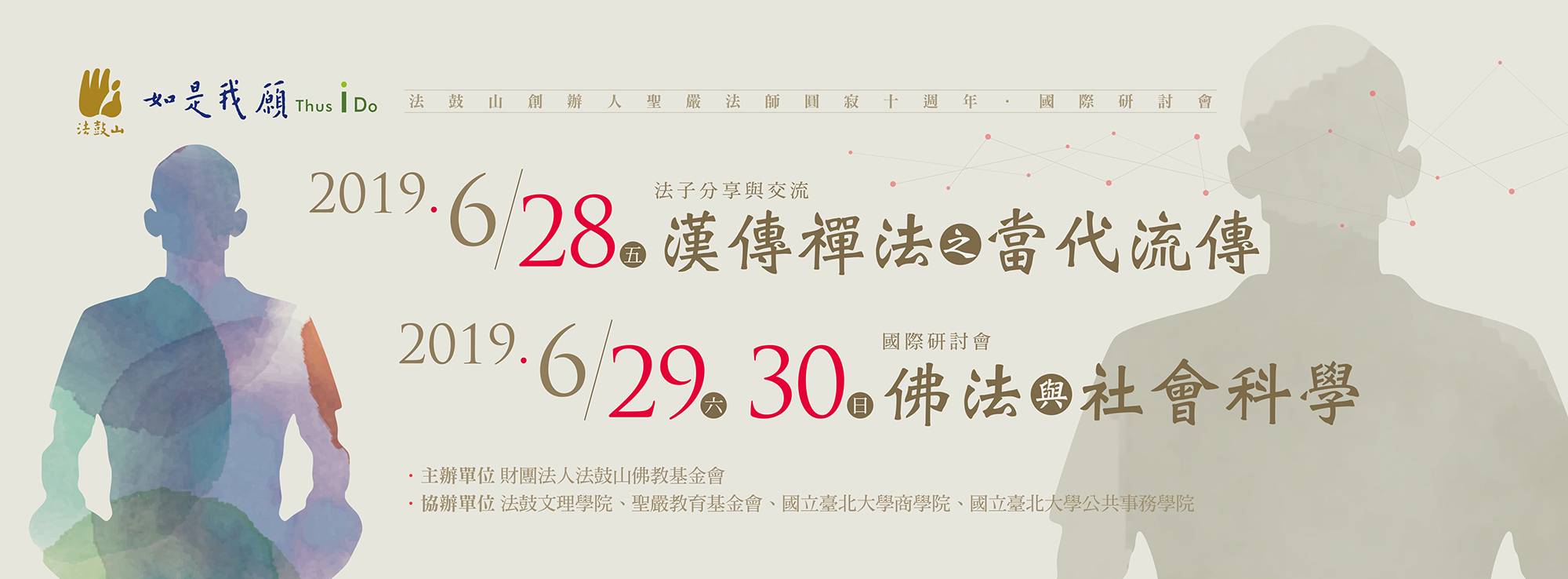Economic Prosperity and Happy Life: On Master Sheng-Yen’s “Building Pure Land on Earth” and Its Inspiration on Buddhist Economic Theory
Yuan-Ho Hsu
The mainstream neoclassical economics has “self-interest” and “competition” as its foundations for the analysis of market efficiency in the capitalist economy. Utility maximization and profit maximization are considered as axioms of efficient market outcomes. Utility is used as synonym of life satisfaction or happiness. Pursing a non-stopping economic growth becomes a mean to achieve the gratification of insatiable desires. The unfortunate outcomes of global warming, natural resources depletion, and income inequality are among various negative impacts on the human environment that had been blamed for the irresponsibility of the market system. The mainstream economics has been accused of being incapable of solving these problems.
The Buddhist economics criticizes the mainstream economics by introducing economic theories based on the ethics of Buddha’s teaching. Contrast to the mainstream economics, the Buddhist economics claims that happiness doesn’t lie on the material consumption, but on the status of mind. While mainstream economics proposes the principle of maximizing consumption with the optimal pattern of production, Buddhist economics treasures maximizing human satisfaction with the optimal consumption pattern. Moreover, the Buddhist economics proposes alternative principles of economics activities, such as minimizing suffering, simplifying desires, non-violence, compassion and genuine care.
This study aims to develop an alternative theoretical framework for the Buddhist Economics study, based on Master Sheng-yen’s preaching of “Protecting the Spiritual Environment” and “Building Pure Land on Earth.” The integrated theoretical framework has consumption, production, employment, social environment, and natural environment in the setting. The aim is to develop a society that could achieve sustain happiness and economic prosperity. The core value of economic activities in the society is to protect the spiritual environment so that the quality of life and purity of the living environment can be preserved.
